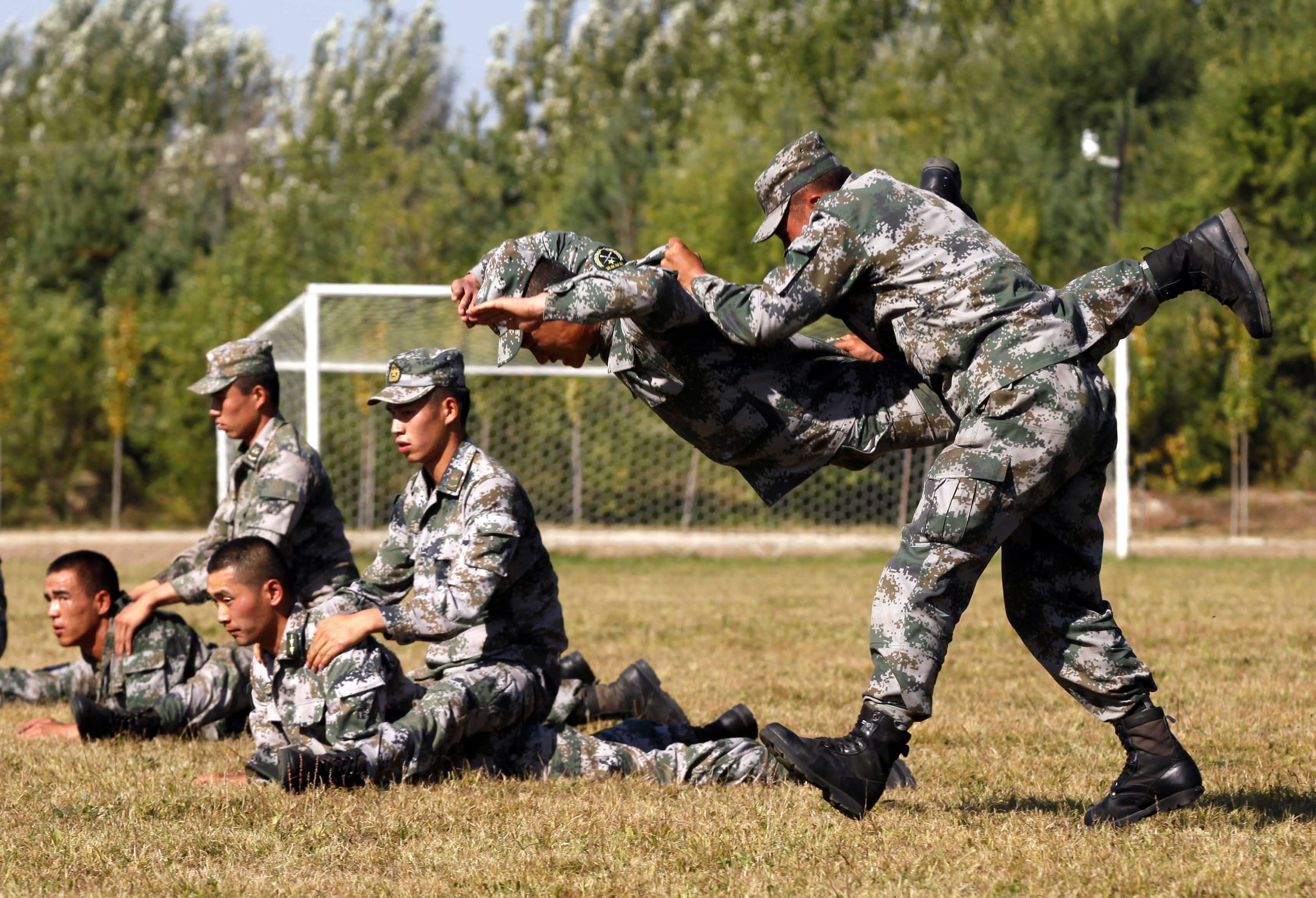BEIJING • President Xi Jinping launched two visions shortly after taking power in late 2012: the China Dream of a rejuvenated country and a combat-ready military able to win wars. Last week, China made two moves meant to take the country closer to the Chinese leader's two visions.
First, it launched unprecedented reforms to turn the People's Liberation Army (PLA) into a leaner, cleaner and meaner fighting force by setting up a joint operational command, and rezoning its military regions into new combat zones, among other changes.
On the same day, the Chinese foreign ministry confirmed, for the first time, its plans to set up China's first overseas military outpost in the strategically important African nation of Djibouti, where the United States already has a military base. Djibouti borders the Red Sea as well as the Gulf of Aden, where the Chinese have operated anti-piracy missions.
The timing of the two announcements might be deliberate, especially as China had declined to confirm its Djibouti plans since May.

More importantly, the start of the military reforms and the construction of the Djibouti outpost could be seen as concrete actions which launch China's push to turn the PLA into a global expeditionary force.
China's goals for such a military are aimed at projecting its power amid strategic rivalry and territorial spats, protecting its growing overseas interests, and fulfilling its global responsibilities in transborder issues such as terrorism and piracy. Such aims are seen as duties and obligations of a strong country and thus the fulfilment of the China Dream.
The military reforms, unveiled at the end of a three-day meeting chaired by Mr Xi, are reportedly aimed at changing the PLA so it is more like the US military. The foreign ministry said the Djibouti "support facility" will provide logistics to Chinese troops and naval vessels taking part in United Nations peacekeeping and humanitarian aid operations.
The way the announcement was framed suggests to Dr David Brewster, a security expert at the Australian National University, that "perhaps, we will see Beijing discussing China's new base in Djibouti as part of building a modern military that will be capable of taking a more active role as a responsible major power".
And, in his view, "in theory, at least, a modern Chinese military taking more international responsibilities as a 'normal' big power, including interacting with other modern militaries, would be welcomed by others".
Chinese military expert Chen Guangwen said the two recent moves are linked. "The reforms will boost the military's combat capabilities, which will make it a reliable contributing force to global peace. Such a force won't be limited to domestic missions.
"Thus, an increasingly global Chinese military will require more overseas bases to safeguard the demand for its combat missions," he wrote in a commentary on Monday .
Beijing has been dropping clues and making moves in recent years towards building an expeditionary military that can be dispatched to fight in foreign lands. In May, its annual defence white paper hinted strongly at a bigger global role for the PLA. It described the move as "in response to the new requirement coming from the country's growing strategic interests", as a result of which "the armed forces will actively participate in both regional and international security cooperation and effectively secure China's overseas interests".
Mr Prashanth Parameswaran, a regular columnist for The Diplomat, a current affairs magazine for the Asia-Pacific, described China's increased presence in Djibouti as part of a broader effort to achieve its national interests by maintaining a forward presence in the Indian Ocean and beyond, and developing the supporting infrastructure for this. "These interests range from safeguarding seaborne energy security to ensuring the safety of Chinese citizens in conflict zones," he told The Straits Times.
"We should not be surprised if China sets up more of such access points - or even a network of them - in the Indian Ocean region and beyond over the next few years."
Such a network, he added, could include areas in Africa, the Middle East and Asia, and would provide China with a range of services - from refuelling and reconnaissance to repair - to support its growing naval presence abroad.
PLA expert Arthur Ding of the Taipei-based Chinese Council of Advanced Policy Studies believes that, besides Djibouti, other African countries are also likely places for similar outposts. These states are less concerned about China's "expansion" than those in South-east Asia, where China has overlapping territorial claims with several states, he said.
An expeditionary PLA could pose challenges and opportunities for the US and the world.
In a paper published in June, security experts Alexander Sullivan and Andrew Erickson wrote that the PLA would have achieved "limited expeditionary" status by 2030, though it might not come close to the US Navy's capability to engage in high-intensity operations globally.
They believe such a PLA could conduct a range of missions across the globe, including: major humanitarian assistance and disaster relief, contested non- combatant evacuation operations, securing high-value assets, such as North Korean nuclear weapons, defence of critical sea lanes, counter-terrorism strikes, and limited stabilisation operations.
Their bottom line was that "the US thus needs to widen the aperture of its three-pillar approach to China - engagement, shaping and balancing - to account for the new scale and scope of China's international security activism".
A paper by Mr R. Lincoln Hines for the US Army War College in August last year statedthat a more global PLA could supplement US efforts at promoting global security or, conversely, its actions could compete with those of the US.
"If the PLA becomes a global expeditionary force, it could take on more international responsibilities, or it could undermine US objectives," he said, adding that in his view "it is unlikely that China would seek to fundamentally alter the US-led international order".
China, he said, would not likely risk a large-scale conflict nor take on the responsibility of leading the world order as such conflict with the US could devastate China's economy, as well as its political and social stability.
Dr Brewster said that though China's interests may be increasingly far flung, he does not think it will set up a global military system in the same way as the US.
"For one thing, Beijing now has little interest in promoting its ideology or getting into ideological battles. Instead, China will be focused on defending its specific economic interests and Chinese nationals, where necessary," he said, adding: "That will give China a very different military footprint as compared with the US."
Mr Prashanth said the changes will take time to unfold and, given Mr Xi's "ambitious and assertive foreign policy approach thus far, it is unclear whether he has the patience for more gradual reform" .
That is tied to the President's view that "China must complete its military transformation if it wants to fully secure its interests and realise its growing ambitions", Mr Prashanth added.
For now, challenges remain for China. Mr Xi might find it hard to implement the military reforms by the 2020 deadline due to resistance from top brass loathe to lose power and jobs. Delay in reforms, in turn, could affect China's ability to set up more overseas bases.

